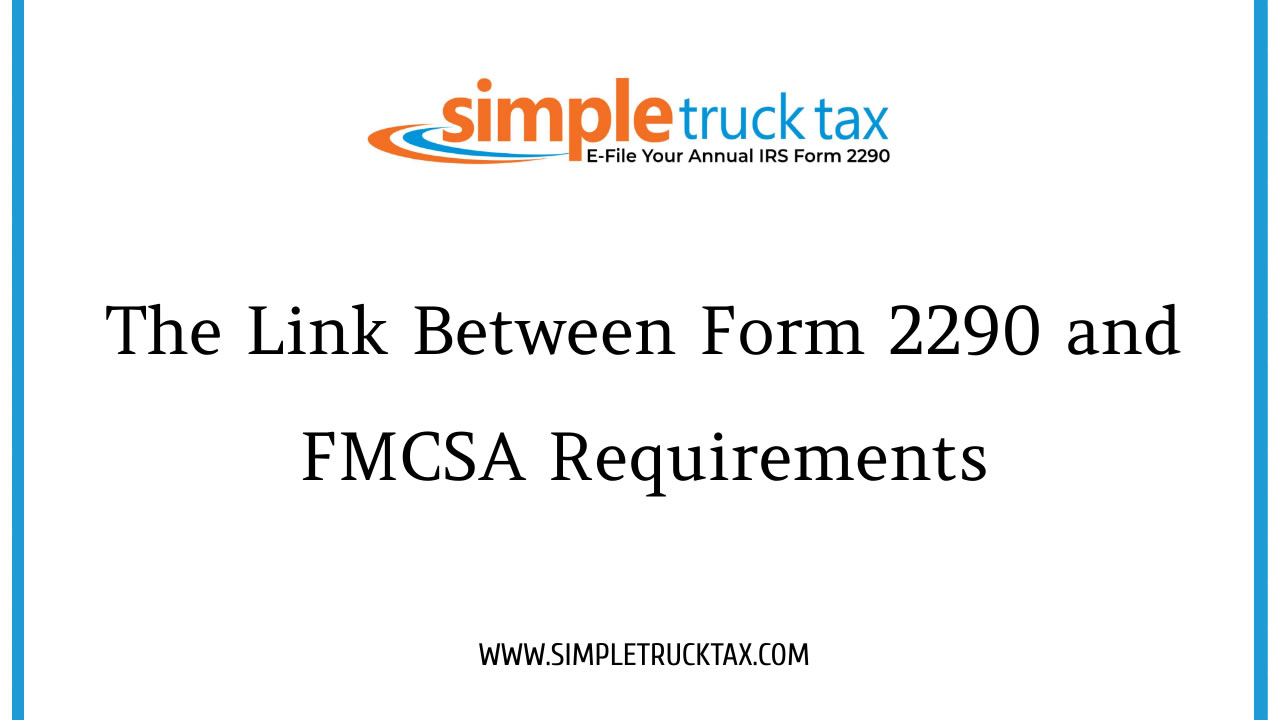11-20-2024
The Link Between Form 2290 and FMCSA Requirements
What is Form 2290?
Form 2290 is the Heavy Vehicle Use Tax (HVUT) for trucks that weight 55,000 pounds and over. This federal tax is filed with the IRS annually. Proof of payment by a stamped Schedule 1 is a required document to register or renew the truck's tags with the state Department of Motor Vehicles.
FMCSA and Its Role in Trucking
Federal Motor Carrier Safety Administration oversees commercial motor vehicles safe and compliant in the roads within the United States. FMCSA requirements include the registration of a truck, qualifications of the driver, and all safety standards. For a vehicle falling under the FMCSA jurisdiction, proper registration is not up for negotiation. This is where Form 2290 comes in.
How Form 2290 Meets FMCSA Requirements
Truck owners must prove the payment of HVUT to register or renew a heavy vehicle with the DMV in order to get compliance through the FMCSA. This proof is usually the stamped Schedule 1 they will receive after filing Form 2290 with the IRS. If this proof is not provided, then FMCSA rules will have their vehicle barred from operation and, thus, be refused registration.
In addition to this, non-compliance to Form 2290 may bring even more issues of fines, penalties, and even suspension of the FMCSA operating authority. Being in control of Form 2290 keeps trucking companies abreast of all registration and safety aspects that the FMCSA mandates.
E-filing Form 2290: A Route to Compliance
Making and staying compliant with DMV and FMCSA requirements can be done in a matter of minutes. Many providers offer e-filing on user-friendly platforms where your stamped Schedule 1 is delivered within a few minutes.
Form 2290 and FMCSA requirements go hand in hand for heavy vehicle operators. Ensuring timely HVUT filing is not only a tax obligation-it is an important step in keeping their vehicles registered and adhering to FMCSA regulations. Through knowing and meeting these requirements, trucking businesses can get on with what they do best: keep America on the move.
Note: For more information, visit IRS website


